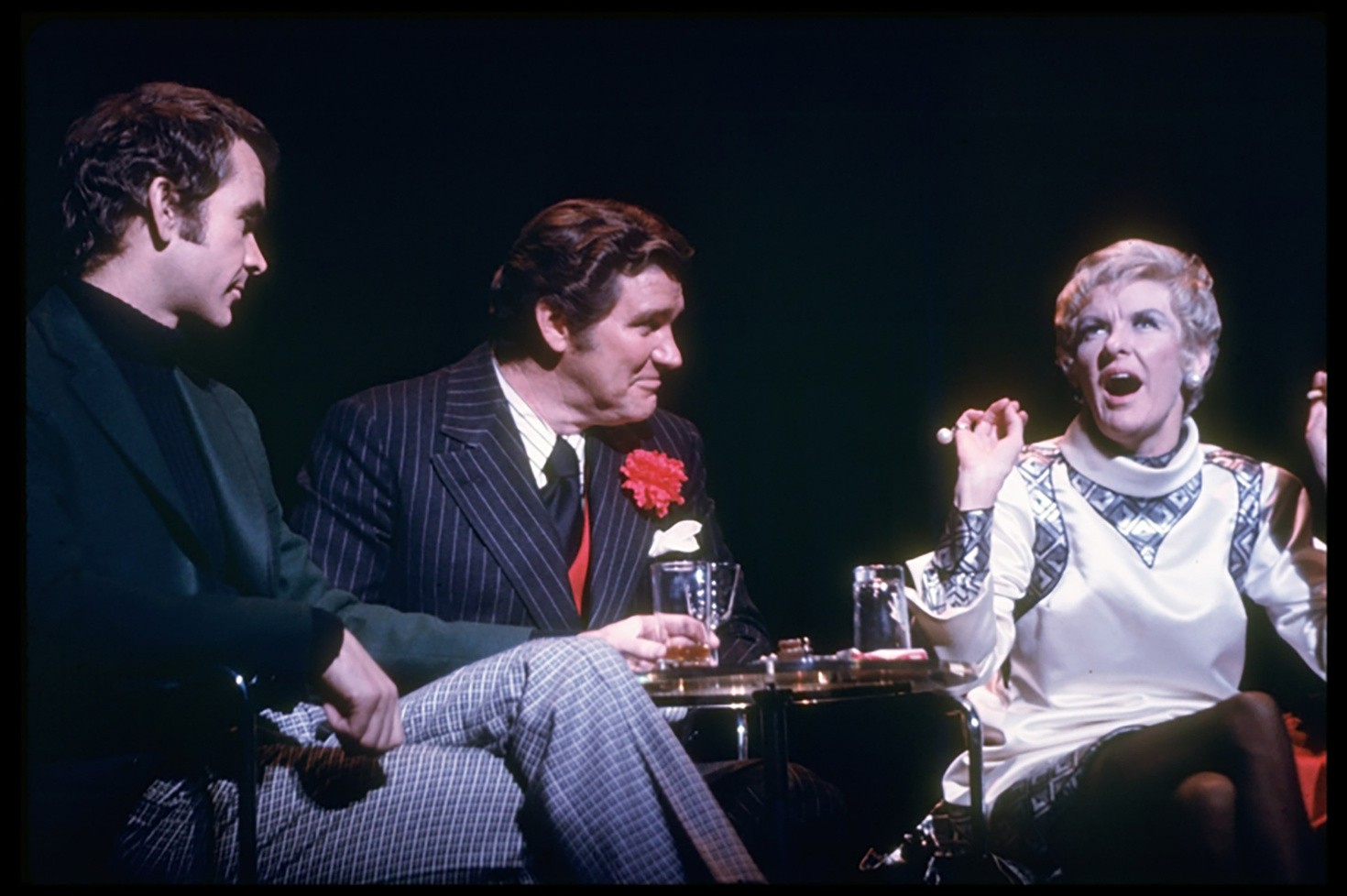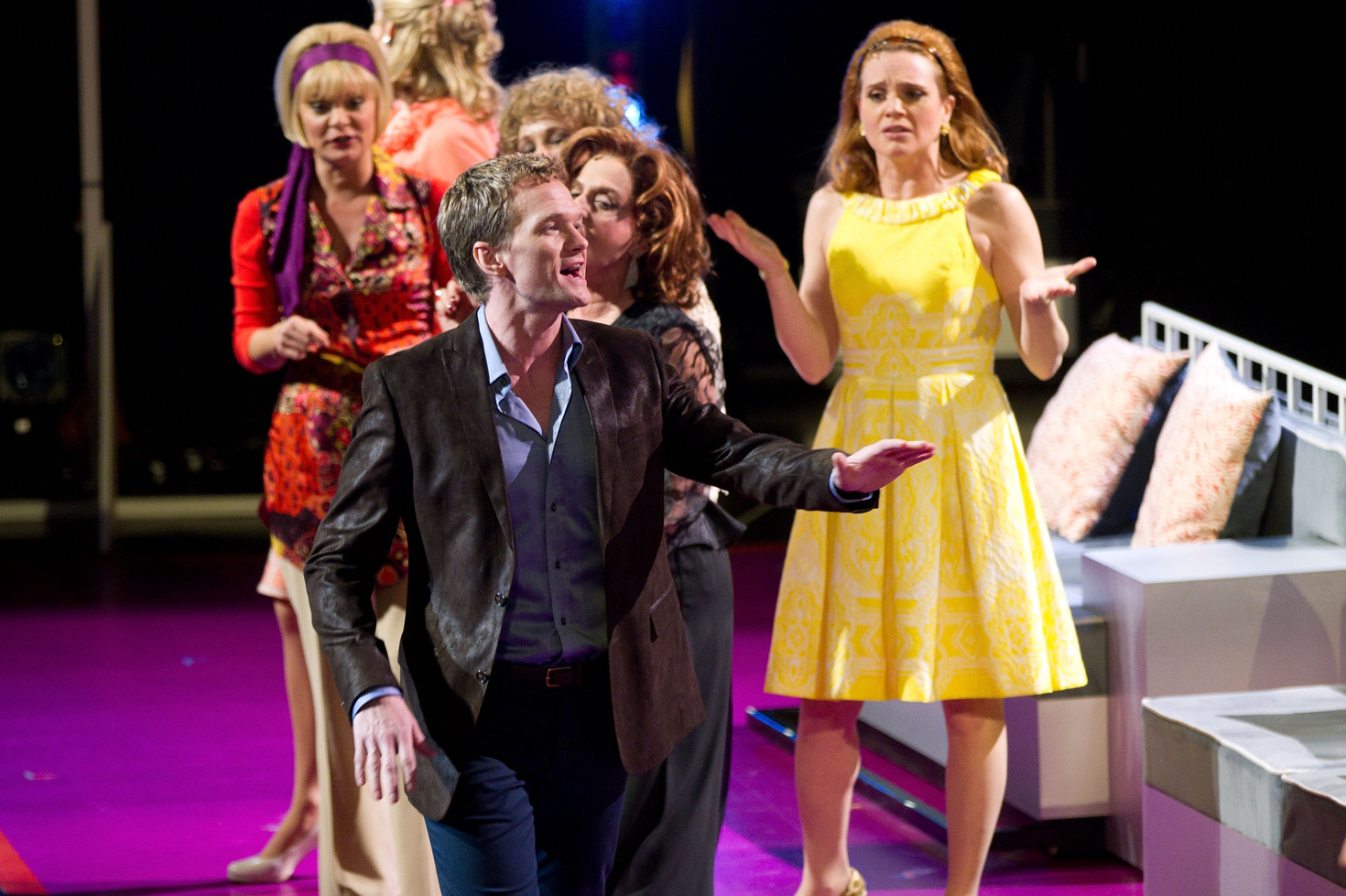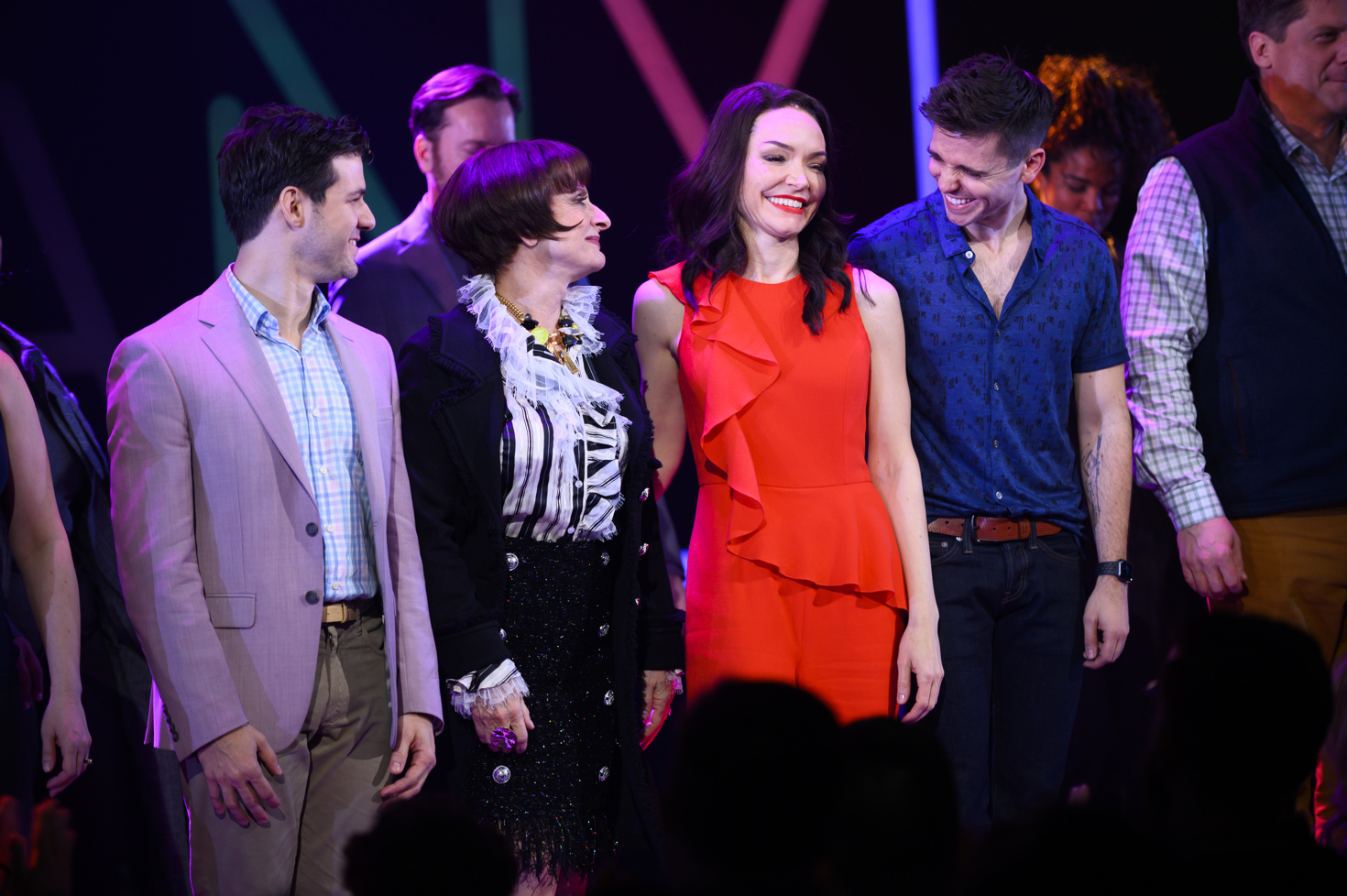
Blow Out the Candles! Celebrate the 50-Year History of Broadway's Company
Phone rings, door chimes, in comes another Company revival. Fifty years after Company changed the face of Broadway musicals, Stephen Sondheim and George Furth’s enduringly modern examination of love and marriage is headed back to the Great White Way, with a gigantic twist: Bachelor Bobby is now bachelorette Bobbie, whose 35th birthday sends her married friends into a matchmaking tizzy. As Tony winner Katrina Lenk preps to blow out the candles at Bobbie’s surprise party, let’s review the production highlights of a show that feels as fresh in 2020 as it did in 1970.
IN COMES COMPANY
In his first of six collaborations with Sondheim, director Harold Prince had the bright idea of turning a collection of one-act plays about marriage written by George Furth in the late ’60s into a musical. Each play included an outsider character, and Sondheim realized that these observers could be merged into one main character, Manhattan man-about-town Robert, who is surrounded by married friends but is hesitant to get hitched himself. Prince cast Broadway vet-turned-Disney star Dean Jones (The Love Bug) as Bobby, and Elaine Stritch was cast as Bobby’s acerbic, hard-drinking older pal Joanne; Furth actually based Joanne on Stritch before she was even cast. Prince then wooed the hot young choreographer Michael Bennett by hiring Bennett’s muse and future wife Donna McKechnie as Bobby’s ex-girlfriend Kathy. Designer Boris Aronson created a chrome and plexiglass set that reflected what Sondheim called “the central theme of the evening: the challenge of maintaining relationships in a society becoming increasingly depersonalized,” as he wrote in his book Finishing the Hat.

SIDE BY SIDE BY SIDE
From its tryout in Boston to opening night at Broadway’s Alvin (now Neil Simon) Theatre on April 26, 1970, Company invited conversation by rejecting the rules of classic mid-century musicals, focusing more on themes than plot. “The show takes place not over a period of time, but in an instant in Robert’s mind,” Sondheim wrote in Finishing the Hat. Rather than advancing the plot (there wasn’t one), the songs provided subtext (“Sorry-Grateful”) and commentary (“The Little Things You Do Together”) on the characters’ lives or functioned as free-standing scenes (“Barcelona”). Bobby’s original 11 o’clock number, “Happily Ever After”—which Prince called, according to the book Sondheim & Co by Craig Zadan, “the bitterest, most unhappy song ever written”—was scrapped during the Boston run. It was replaced by the more hopeful anthem “Being Alive,” where Bobby realizes that he truly does want companionship and “somebody [to] crowd me with love.” The original run of Company was not without drama; Dean Jones left the show a month after its Broadway opening, in distress over his own impending divorce. Jones recorded the cast album but in March 1971, Larry Kert became the only replacement ever nominated for a Best Actor Tony. Company nabbed 14 Tony nominations and won six, including Best Musical, Best Score, Best Book and Best Director. It ran on Broadway until January 1, 1972.

BOBBY BABY, BOBBY BUBI
Oceans of ink have been spilled trying to get inside the head of Company’s elusive lead character Bobby. “One of the problems was that Bobby had to be the observer,” Hal Prince noted in Sondheim & Co. Boyd Gaines headlined a 1995 Broadway revival, which developed the character of Bobby further by adding “Marry Me a Little” to the end of Act One, a song he sings after floating the idea of marriage to an ex-girlfriend, which Sondheim characterized as “an internal monologue of despair and self-deceptive determination.” Raul Esparza gave a blistering performance in the 2006 Broadway revival. Over the years, speculation swirled that Bobby is perpetually single because he’s secretly gay, a notion that gained traction when Neil Patrick Harris sang the role in a New York Philharmonic concert production in 2011. Sondheim always said no, but he allowed John Tiffany to direct an all-male workshop in 2013 with Alan Cumming as Joanne. “It didn’t work,” the composer said later, “because it wasn’t written that way.” But when a two-time Tony-winning director suggested a gender switch for Bobby, Sondheim was intrigued.
HAVE I GOT A GIRL FOR YOU
After proving herself a theatrical visionary with War Horse and The Curious Incident of the Dog in the Night-Time, British director Marianne Elliott began pondering a revival of Company with a female lead, set in present-day New York. “I was very aware in my mid-30s…that you get to a place where you think: If I’m going to settle down and start a family, I’ve probably got five years left,” she said in an introduction to the published script of her 2018 London production. “Company absolutely hits that nail on the head.” What’s more, a modern woman like Bobbie (played by Rosalie Craig in the West End) would almost certainly be feeling pressured to get married. To Sondheim’s delight, the lyrics required only minor tweaks, even when roles swapped genders and reluctant bride Amy morphed into groom-to-be Jamie, fiancé of Paul. The London revival opened in the West End on October 17, 2018, and subsequently won four Olivier Awards, including one for Patti LuPone in full diva mode as Joanne and Best Musical Revival. “It’s not ‘better,’ it’s just different,” Elliott said of her re-imagined Company. “Truly good writing has the space for very different interpretations.”

EVERYBODY RISE!
To lead the Broadway transfer of Company, Elliott tapped Katrina Lenk for Bobbie, a 2018 Tony winner for her alluring lead performance as Dina in The Band’s Visit. LuPone will drink vodka stingers again as Joanne opposite Terence Archie as Larry; Nikki Renée Daniels and Christopher Fitzgerald smoke pot with Bobbie as Jenny and David; Rashidra Scott and Greg Hildreth contemplate divorce as Susan and Peter; Christopher Sieber and Jennifer Simard demonstrate jiu-jitsu as Harry and Sarah; and Matt Doyle and Etai Benson contemplate “Getting Married Today” as Jamie and Paul. As for Bobbie’s suitors, the newly renamed Andy, Theo and P.J. are played by Claybourne Elder, Kyle Dean Massey and Bobby Conte Thornton, respectively. Appropriately enough, this quintessentially New York musical is set to open at the Jacobs Theatre on March 22, 2020, Stephen Sondheim’s 90th birthday. We'll drink to that!
